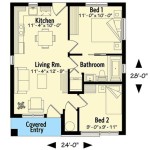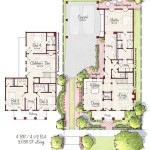Building Plans For My Home
Building plans are the foundation of any successful home construction project. They provide a detailed roadmap for the construction process, ensuring that all aspects of the build are planned and coordinated in advance. From the initial design phase to the final inspection, building plans serve as a valuable tool for both homeowners and contractors alike.
Benefits of Building Plans
There are numerous benefits to having detailed building plans for your home. These include:
- Cost Savings: Building plans help to prevent costly mistakes and ensure that the construction process runs smoothly and efficiently.
- Accurate Cost Estimates: Detailed plans allow for accurate cost estimates, reducing the risk of unexpected expenses.
- Efficient Construction: Plans provide a clear schedule for the project and ensure that all materials and labor are available when needed.
- Code Compliance: Building plans must adhere to local building codes, ensuring the safety and structural integrity of the home.
- Future Modifications: Having a detailed set of plans makes it easier to make changes or additions to the home in the future.
Creating Building Plans
Creating building plans is a complex process that involves several steps:
- Design Concept: Begin with a clear design concept that includes sketches and floor plans.
- Site Analysis: Conduct a thorough analysis of the building site, including soil conditions, drainage, and environmental factors.
- Schematic Design: Develop preliminary plans that include room layouts, structural elements, and utility systems.
- Design Development: Refine the plans, add details, and select materials and finishes.
- Construction Documents: Finalize the plans, including all necessary specifications for construction.
Choosing a Designer
Choosing the right designer is crucial for creating successful building plans. Consider the following factors:
- Experience and Qualifications: Look for a designer with experience in residential home design and knowledge of building codes.
- Communication Skills: The designer should be able to clearly communicate their ideas and work effectively with you.
- Portfolio: Review the designer's portfolio to assess their design aesthetic and technical abilities.
- References: Ask for references from previous clients to get feedback on the designer's work and professionalism.
Conclusion
Building plans are an essential part of any home construction project. They provide a comprehensive guide for the entire process, ensuring cost savings, accurate estimates, efficient construction, code compliance, and future flexibility. By carefully creating building plans and choosing a qualified designer, you can lay a solid foundation for a successful and rewarding home building experience.

House Plans How To Design Your Home Plan

House Plans How To Design Your Home Plan

House Plans How To Design Your Home Plan

House Plans How To Design Your Home Plan

House Plans How To Design Your Home Plan

3d Floor Plans

Floor Plans Types Symbols Examples

Where You Can Buy House Plans Live Home 3d

Est House Plans To Build Simple With Style Blog Eplans Com

Floor Plans Learn How To Design And Plan








